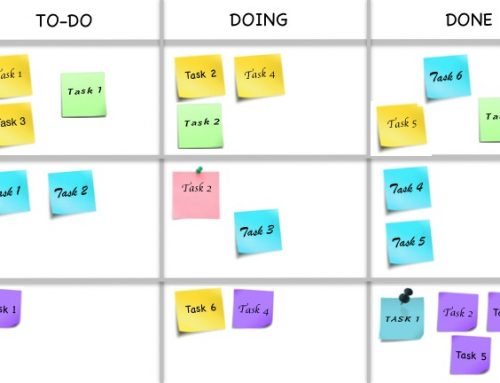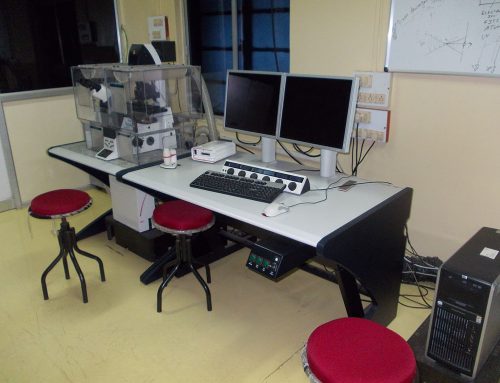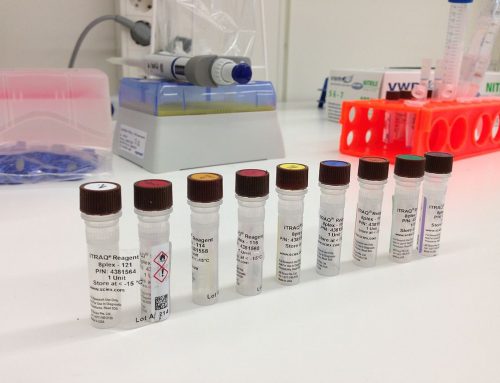Have you ever done an experiment and wondered why you can’t reproduce results from a former group member, or maybe looked through someone else’s lab journal only to end up more confused than when you started?
Fuzzy or clear footprints – your choice
It is never easy to understand another researchers’ notes or to understand their filing system. In academic research turnover in a group can be quite high while in industrial research people are rapidly shifted between projects as priorities wax and wane. What are you leaving behind for researchers that need your notes – that need to understand in detail how you performed an experiment? If you are present you can help that person (assuming you remember what you did), but need to spend time doing it. If you have left the lab or don´t have time to explain, how much time and frustration in failed experiments are you leaving for the person following in your footsteps?
5 ways to make lab-life easier for yourself and others
OK – I do admit it – I like systems and order, perhaps more than the average person, but I also know that what I have left behind has been greatly appreciated by the people coming after me. I always took pride in how I wrote my lab journal and I got terribly frustrated when I had to spend half a day asking around for common methods that were used in the lab. Here are five tips that will save time and energy for you while saving frustration for your lab colleagues.
1. Write a good lab journal
Like you don´t know that. Of course you write a good lab journal, but have you thought of how important it is to write down all the details – clearly – so that you or others can read it again later and understand what you did and why? And please – write legibly, avoid using abbreviations (unless you have clearly identified them), and state what did not work. Take pictures using your cell phone camera – not just images of results.
2. Make a method book
Write down the most common techniques in your lab – and have everyone contribute. All labs have their own special way of doing things; even the most common method has it´s own little twist. I have had the fortune to work across different labs and it was such a relief when I could get a hold of a written description on how things were done in the new lab and not the least where to find the solutions and equipment.
3. Keep a good archiving system for test tubes
In all life science labs there is a plethora of plasmids and variants, transfected and not transfected cell strains, peptides for this and that, various oligo flavors, expressed proteins with mutations here and there etc. etc. Do yourself and the lab a favor by keeping a good record of where the key reagents are stored and how they are labeled: be precise!
4. Throw away useless things
Do you have a hard time throwing away old things? Are your shelves in the fridge and freezer in the lab running over? Do you really need to keep all of it? Keeping old reagents leads to dust bunnies, less room to work, and confusion. Especially when you leave the lab, do the courtesy and throw away things that will never be used again.
5. Videotape your special techniques
There are many techniques you can’t truly learn before seeing how others do it. It is not always easy to find time to teach properly, especially if you no longer work in the lab. Record on video how you do it and talk and explain while you record it. You will be surprised at how easy this is – and fun! You spent so much time developing your techniques and it is a real waste when others can’t learn from you.
Time spent is time saved
This is the point where you will probably say that making all these systems and organize everything takes too much time. That it is easier to be paralyzed by the scope of the project, or that it should be put off for another day. And yes, if you start from the beginning and start winding all of your loose ends you will probably spend quite a few weeks just doing that. Rather – just start now! Start making systems in your present and future projects and work your way backwards when you see that it’s necessary and when you have time to do it. It is better to start at one point than never start at all.
If you spend 20 minutes every day over coffee or tea and make a routine out of organizing your work you will not only help those that come after you, but you will be a better researcher. Remember, that we stand on the shoulders of those scientists who have walked before us.
Please share approaches or systems that you think work well by posting a comment.
In case you haven’t seen this, “Caught in a Bad Project” is one of my favorite science videos and it humorously touches a few of the points in this blog post.







Leave A Comment